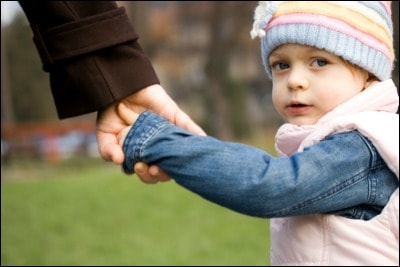 Are you a divorced or unmarried parent? If so, have you ever wondered what would happen to your child in the event you died? If you are a noncustodial parent, have you wondered what would happen if the custodial parent died? Are there third parties with a legitimate interest in the child who would want custody in the event you or the other parent died?
Are you a divorced or unmarried parent? If so, have you ever wondered what would happen to your child in the event you died? If you are a noncustodial parent, have you wondered what would happen if the custodial parent died? Are there third parties with a legitimate interest in the child who would want custody in the event you or the other parent died?
These are all good questions and things that you should be thinking about now.
The Typical Case
Typically, if one parent dies, the other parent will assume custody in total. In the event both parents die, or in the event a single-parent dies (i.e. there exists no other legal parent), then hopefully there exists a valid will that appoints a guardian to the child, as well as an appointed trustee as to the child’s inherited property. In Virginia, a circuit court will, more often than not, follow the desire of the parent(s) as expressed in the will as far as guardianship is concerned. If the parents made no appointment via a valid will, then third parties with a legitimate interest in the child should be prepared to file appropriate petitions with the court.
Divorce, Custody and Unfitness
If the child’s parents are divorced or are not together, and the children are subject to a custody court order, then things like will appointments, assumptions of custody, control over inheritance, etc. can get complicated. Why? Because the child may have a stepparent, grandparent or other relative who believes the child would be better left in their care and control.
In Troxel v. Granville, 530 U.S. 57, 65 (2000), the U.S. Supreme Court established that parents have an inherent constitutional right in the rearing of their children. The Court stated that the “interests of parents in the care, custody and control of their children… is perhaps the oldest of the fundamental liberty interests recognized” by the Supreme Court. This right belongs only to parents: not to relatives, stepparents, godparents, etc. Naturally, the surviving parent, even if divorced from the deceased parent, not romantically involved with the deceased parent and/or to some extent estranged, is the person favored to take guardianship of the child. They are also the person favored to take control over the child’s inheritance, in the event a trustee is not appointed.
But what if the noncustodial parent is unfit to take custody upon the death of the custodial parent? What if there exists a stepparent, grandparent or other relative who wants to take custody instead?
In Virginia, any third party with a legitimate interest in the child can petition the court for custody. In order to be granted custody over a surviving parent, the third party will have to demonstrate (a) that the surviving parent is unfit and (b) that it is in the best interest of the child that the child be placed in the third party’s custody. So, what is unfitness? Unfitness has no fixed definition, but a history of violence and abuse, history of illegal and criminal conduct, history of severe lapses in judgment and/or neglect of the child, a general lack of stability, etc. would all be evidence of potential unfitness.
If you are interested in petitioning for custody of a child whose parent(s) is/are deceased, contact an experienced family law attorney as soon as possible. If you are a parent who simply wants to make arrangements for the custody of your child in the event something happens to you, you should consult both with an experienced family lawyer (if you and the other parent are living apart) and an estate planning attorney. In either case, if you are a resident of Northern Virginia, contact us to schedule a consultation today.
The post Child Custody After Death of Parents appeared first on Livesay & Myers, PC.